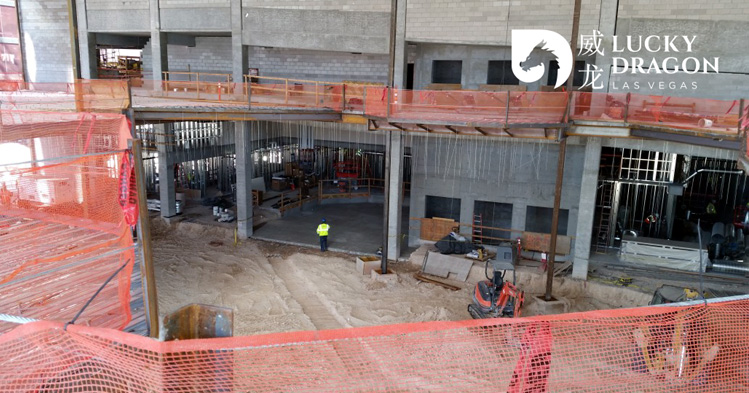Former Las Vegas Sands president, William Weidner and real estate developer Andrew Fonfa seem to have fallen back on “Plan A” to raise investment capital for their maverick Asian-themed gaming and entertainment venue just off The Strip on West Sahara Ave., in Las Vegas. Having already raised some $60 million in foreign capital through the EB-5 visa program for the Lucky Dragon Hotel & Casino, the project’s primary potential financing partner, First Foundation Bank, told the developers in November that they did not intend to provide $30 million in funds without a “material credit enhancement such as [tax increment] TIF financing” or the raising of an additional $25 million in EB-5 capital.
The Las Vegas Redevelopment Agency (LVRA) subsequently denied a request to offset taxes through tax increment financing, leaving the developers with the option of funding the rest of the project themselves, seeking alternate financing, or going back to the “green card” program in order to meet the bank’s demands.
The Las Vegas Economic Impact Regional Center (LVEIRC) has already helped the Downtown Grand become a reality and now they are focused on helping Lucky Dragon complete their project with an eye toward opening by August. The LVEIRC is headed up by William Weidner and Andrew Fonfa, and provides one-on-one assistance to investors “throughout their investment process and transition to life in the United States,” according the Center’s website.
The LVEIRC website offers a detailed infographic (.pdf) on how the EB-5 program works. In a nutshell, foreign investors may be able to secure conditional permanent residency in the United States in exchange for the creation or preservation of at least 10 full time jobs in a target community after two years. The Regional Center’s requirement is for the minimum investment of $500,000 per program guidelines. Potential investors are vetted and the process is handled by the United States Citizenship and Immigration Services, a division of Homeland Security.
The program has been around since 1990 and is not without controversy. SLS Las Vegas, just across the street, was the focus of a Washington Times exposé in December 2013 alleging that White House officials overruled Homeland Security resulting in expedited visa applications for more than 20 foreign investors. Pressure behind the actions reportedly came from Senate Majority Leader Harry Reid and his staff. ABC News picked up the story in early 2014. The ABC investigation turned up allegations of applicants having committed fraud, involvement in money laundering, and indicated that one applicant had alleged ties to a child pornography website. The Nevada Senator’s office defending their participation in the process saying their actions simply moved the applications forward and that they had no influence on “the ultimate outcome of [the] petitions,” an aid told ABC.
Along with a peppering of controversy, the program’s 25 year history is also shot though with success. In addition to SLS Las Vegas, the program has paid for a variety of economic development projects around the country from a Hollywood movie studio to a ski lodge in Vermont, a California winery, and a Brooklyn basketball arena among others and has created or preserved well over 40,000 American jobs.
Despite Lucky Dragon’s cautions to the LVRA in November that they would, “be forced to cease all development activity in the coming months” without the TIF option being granted, construction is moving forward on the $373 million resort. The developer’s website posted construction updates on January 20th along with a note stating, “This week we continued fitting out the hotel interior, enclosing the hotel tower with glass, and pouring the decks for the casino and entertainment space.” Locals are talking about seeing activity from the street as well.
When completed the Lucky Dragon Hotel & Casino will offer 375,000 square feet of resort space with more than 200 guestrooms and suites situated over 9 stories. Hosts and staff will be multi-lingual with signage in Chinese and English, the theme throughout will be Asian in nature. Five restaurants, four lounges, a spa, pool and retail space will augment the 19,000 sq ft casino which will offer 350 gaming machines and 48 tables.
Readers interested in learning more about the EB-5 program can find more information on the Las Vegas Economic Impact Regional Center website.


